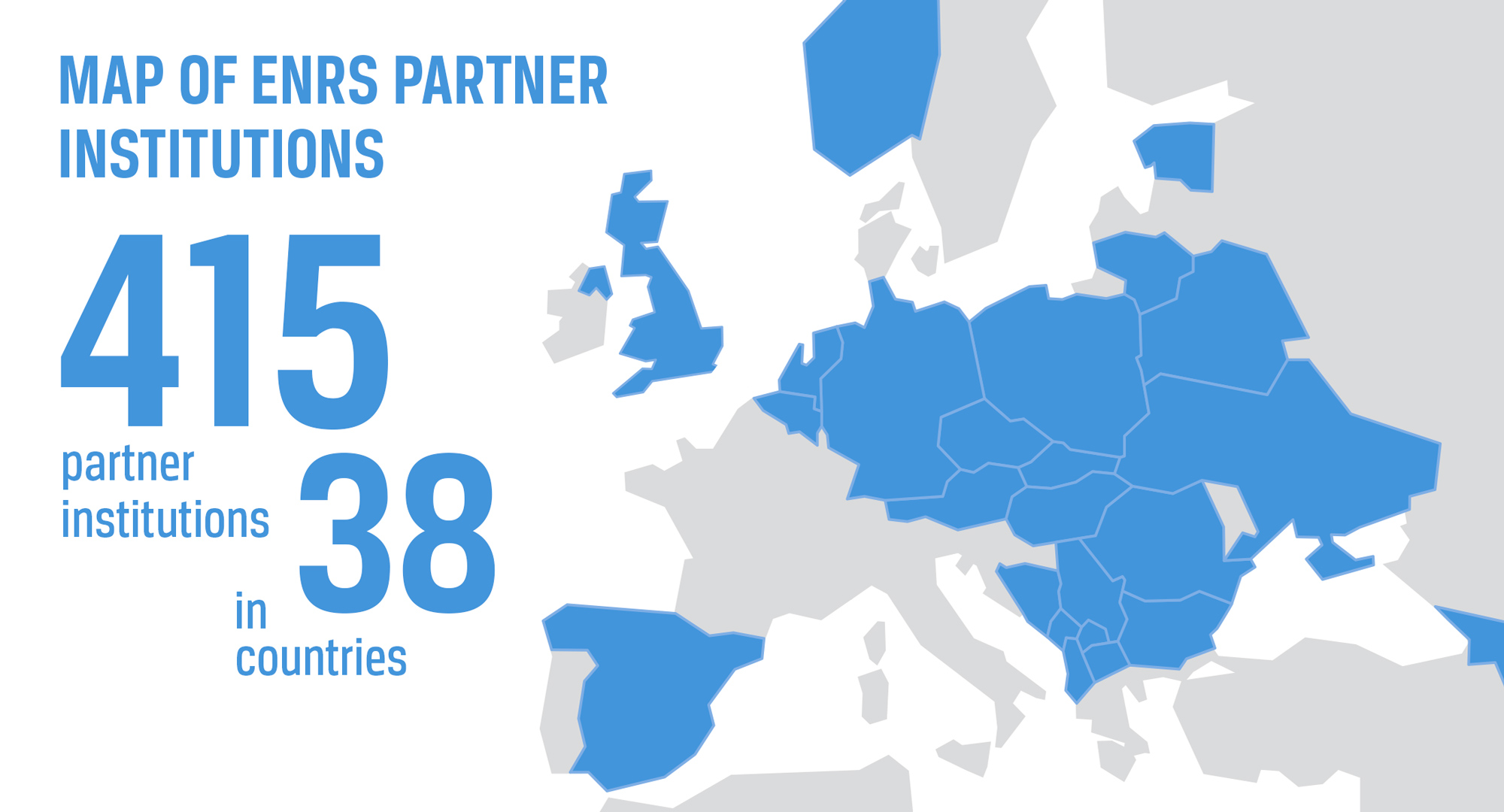Building a network of institutions dealing with 20th-century history and thereby supporting and animating the European debate on remembrance lays at the heart of the creation of the ENRS. Already at the time of its establishment, the Network was defined as a developing project, integrating many historical experiences, approaches and sensitivities. Today, 15 years later, our goal remains unchanged, while our efforts towards looking for and creating platforms of dialogue and mutual understanding yet need to be increased.
So far we have cooperated with more than 400 institutions from 38 countries. We would like to take this opportunity and thank all our partners and collaborators for their inspiration and conceptual, methodological and practice-based expertise. It is thanks to close and valuable partnerships that we have grown as a network and have developed our programme of activities as it is today.
While the pandemic deprived us of the opportunity to meet in person, we have looked for alternative ways to maintain relationships with our partners. That is how the idea for Making Memory Alive Together emerged. The project involved weekly posts on the ENRS’s Facebook and Twitter profiles dedicated to the network’s partner institutions, showcasing their projects, activities and events. In 2020 and 2021 we presented 46 institutions this way.
2020
Estonian Institute for Historical Memory (Estonia)
Documenta - Centre for dealing with the past (Croatia)
Elie Wiesel Romanian National Institute for Studying the Holocaust (Romania)
University of Rijeka (Croatia)
Pilecki Institute (Poland)
International Visegrad Fund (Bratislava)
Soviet Past Research Laboratory, SovLab (Georgia)
Memorial Museum Ravensbrück (Germany)
Research Centre for the Humanities of the Hungarian Academy of Sciences (Hungary)
Museum of Poles Saving Jews (Poland)
Borderland Foundation (Poland)
House of European History (Brussels)
House of the Wannsee Conference (Germany)
Albanian Authority for Access to Information on Ex-Sigurimi Files (Albania)
Herder Institute (Germany)
Nation’s Memory Institute (Slovakia)
Federal Institute for Culture and History of the Germans in Eastern Europe (Germany)
Narvik Centre of War and Peace (Norway)
European Observatory on Memories (EUROM) (Spain)
Georg Eckert Institute for International Textbook Research (Germany)
MOTTE – Community & Cultural Center (Germany)
Auschwitz-Birkenau State Museum (Poland)
Vilna Gaon Museum of Jewish History (Lithuania)
Krzyżowa Foundation for Mutual Understanding in Europe (Poland)
National University of Political Studies and Public Administration - College of Communication and Public Relations (Romania)
Polish History Museum (Poland)
Institute for The Study of Totalitarian Regimes (Czechia)
Memory Studies Center in the Caucasus (MSCC), Ilia State University (Georgia)
2021
Museum of the Latvian Occupation, Riga, Latvia
Warsaw Ghetto Museum, Warsaw, Poland
Federal Foundation for the Settlement of the SED Dictatorship, Germany
‘Culture - Identity – History’ Research Group, University of Pécs, Hungary
Post-Conflict Research Centre, Sarajevo, Bosnia and Herzegovina
POLIN Museum of the History of Polish Jews, Poland
Maisons-Laffite Literary Institute, France
Centre for Polish-Russian Dialogue and Understanding, Poland
Denkort Bunker Valentin, Germany
Václav Havel Library, Prague, Czech Republic
Museum and Memorial Site in Bełżec, Poland
Post Bellum, Prague, the Czech Republic
Foundation for Polish-German Cooperation, Warsaw, Poland
House of Austrian History, Vienna, Austria
Memorial, an International historical, educational, charitable and human rights society, Russia
Committee of National Remembrance, Budapest, Hungary
KARTA Centre, Warsaw, Poland
#inpartnerswetrust #partnENRS
